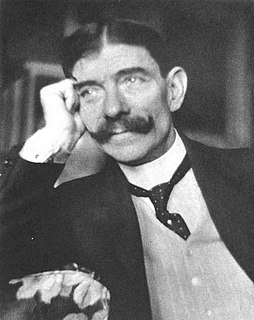A Quote by N. T. Wright
For Paul 'righteousness' and 'justice' are the same word, as they were in Hebrew. Paul clearly believes that helping the poor is a central and ongoing part of Christian commitment, precisely because in Jesus Christ God has unveiled and launched his plan for the rescue, redemption and renewal of the whole creation. Justification and justice go very closely together.
Related Quotes
Was not Jesus an extremist for love: "Love your enemies, bless them that curse you, do good to them that hate you, and pray for them which despitefully use you, and persecute you." Was not Amos an extremist for justice: "Let justice roll down like waters and righteousness like an ever-flowing stream." Was not Paul an extremist for the Christian gospel: "I bear in my body the marks of the Lord Jesus."
I am also very excited by the way in which we can see Paul wrestling not only with his Jewish world and its scriptures but also, by clear implication, with philosophical and political issues that were 'out there' at the time. The thing is that for Paul this is all part of the same larger, whole vision of God and God's purposes. Watching how everything comes together is an intellectual treat of the first order - as well as a spiritual and practical challenge to me personally and to the church.
Paul's vision, though, is starting small, with actual communities in which reconciliation and justice has to be practiced - like the rich/poor distinction in the Corinthian church, for instance, or the projected reconciliation between Philemon and Onesimus. But he clearly believes (Ephesians 3) that communities like this send a signal to the wider world that Jesus is Lord - which is aimed at then the whole world coming into line.
It has been said that God's gift is also indescribable because of the grace by which it is given. God, who is rich in mercy, gave the world the gift of His dear Son while we were at enmity with Him. Paul says: 'But God commendeth His love toward us, in that, while we were yet sinners, Christ died for us' (Rom. 5:8). Therefore, in Him we are freely given all things: redemption, forgiveness of sins, righteousness, peace, hope, wisdom and knowledge.
The whole earth, then, belongs to Jesus. It belongs to him by right of creation, by right of redemption and by right of future inheritance - as Paul affirms in the magnificent cosmic declaration of Colossians 1:15-20. So wherever we go in his name, we are walking on his property. There is not an inch of the planet that does not belong to Christ. Mission then is an authorized activity carried out by tenants on the instructions of the owner of the property.
The Psalter is the prayer book of Jesus Christ in the truest sense of the word. He prayed the Psalter and now it has become his prayer for all time...we understand how the Psalter can be prayer to God and yet God's own Word, precisely because here we encounter the praying Christ...because those who pray the psalms are joining in with the prayer of Jesus Christ, their prayer reaches the ears of God. Christ has become their intercessor.
The call of God is to preach the gospel--namely, the reality of redemption in our Lord Jesus Christ. The one passion of Paul's life was to proclaim the gospel of God. He welcomed heartbreak, disillusionment , and tribulation for only one reason--these things kept him unmovable in his devotion to the gospel of God.
A Christian is one who recognizes Jesus as the Christ, the Son of the living God, as God manifested in the flesh, loving us and dying for our redemption; and who is so affected by a sense of the love of this incarnate God as to be constrained to make the will of Christ the rule of his obedience, and the glory of Christ the great end for which He lives.


































